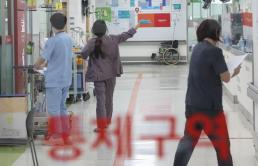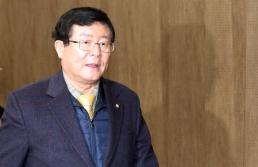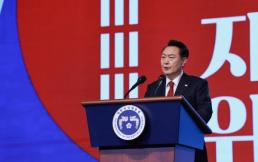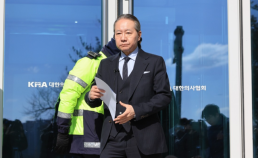 |
||
| U.S. President Barack Obama (R) laughs as he sits alongside members of Congress during a meeting in the Cabinet Room of the White House in Washington, DC, on December 9, 2009. | ||
“The president said he would look at some of our proposals,’’ Representative Eric Cantor, the House Republican whip, told reporters after the session. But, he added, “there is a stark contrast between what the president is proposing and our no-cost jobs plan.’’
Mr. Obama invited both Republican and Democratic leaders to the White House to talk about his latest proposals to spur job creation, which he outlined in a speech Tuesday at the Brookings Institution, a left-leaning research organization.
The president’s ideas include tax breaks for small businesses and energy rebates for homeowners. Republicans deem those plans too costly, and are proposing that the administration eliminate rules and regulations that they say are burdensome to business – ideas the president said he would consider.
Mr. Obama came to Washington vowing to work in a bipartisan fashion, but so far there has been little bipartisanship on the major issues facing his young administration – the economy, climate change, and health care.
Mr. Cantor described the discussions Wednesday as “more cordial, more in-depth perhaps than usual.’’ And the president said afterward that he hopes that “as we move forward, we can work together.’’
Yet accounts of the session included some tense moments.
One person familiar with the meeting said that the House Republican leader, Representative John A. Boehner of Ohio, began the session by pushing back against Mr. Obama’s assertion that Republicans are trying to use the jobs issue to score political points against Democrats.
“Mr. President, we do a lot of politics in this town, but we are committed to working together in areas where we agree to get the American people back to work,’’ this person quoted Mr. Boehner as saying.
Later in the session, Mr. Obama complained that Republicans, who have cast his health care policies as a “government takeover’’ and his jobs ideas as tax increases, are using scare tactics and undermining confidence in the economy.
South Korea recently initialed a Free Trade Agreement (FTA) with the EU, and is actively seeking similar pacts with China, Japan, Canada, Colombia, the Association of Southeast Asian Nations (ASEAN) and several other countries.
Independent studies show the implementation of the FTA with Korea, the seventh biggest trading partner for the U.S., will create 240,000 jobs and increase annual two-way trade by more than US$20 billion from the current $83 billion.
Obama said in Seoul last month that he is ready to deal with South Korea separately from other Asian countries, such as China, which has been accumulating a huge surplus in trade with the U.S.
For his part, South Korean President Lee Myung-bak said he is willing to discuss the imbalance in auto trade, the biggest barrier to the ratification of the deal signed in June 2007.
While in Seoul, Obama said he was pleased to have more tools to persuade Congress, Seoul officials said.
They noted that Lee told Obama that South Korea's trade surplus with the U.S. was just about $8 billion, far less than those of China and Japan, and that the U.S. deficit is easily neutralized once the U.S. surplus with South Korea in finance is included.
Obama expressed concerns in Seoul over "the incredible trade imbalances" that the U.S. has experienced in recent decades, but added, "Those imbalances are not as prominent with Korea."
On the timing of the ratification, Obama said, "The question is whether we can get it done in the beginning of 2010, whether we can get it done at the end of 2010. There's still some details that need to be worked out."
아주경제= 인터넷뉴스팀 news@ajnews.co.kr
(아주경제=ajnews.co.kr) 무단전재 배포금지
©'5개국어 글로벌 경제신문' 아주경제. 무단전재·재배포 금지


![[르포] 중력 6배에 짓눌려 기절 직전…전투기 조종사 비행환경 적응훈련(영상)](https://image.ajunews.com/content/image/2024/02/29/20240229181518601151_258_161.jpg)



